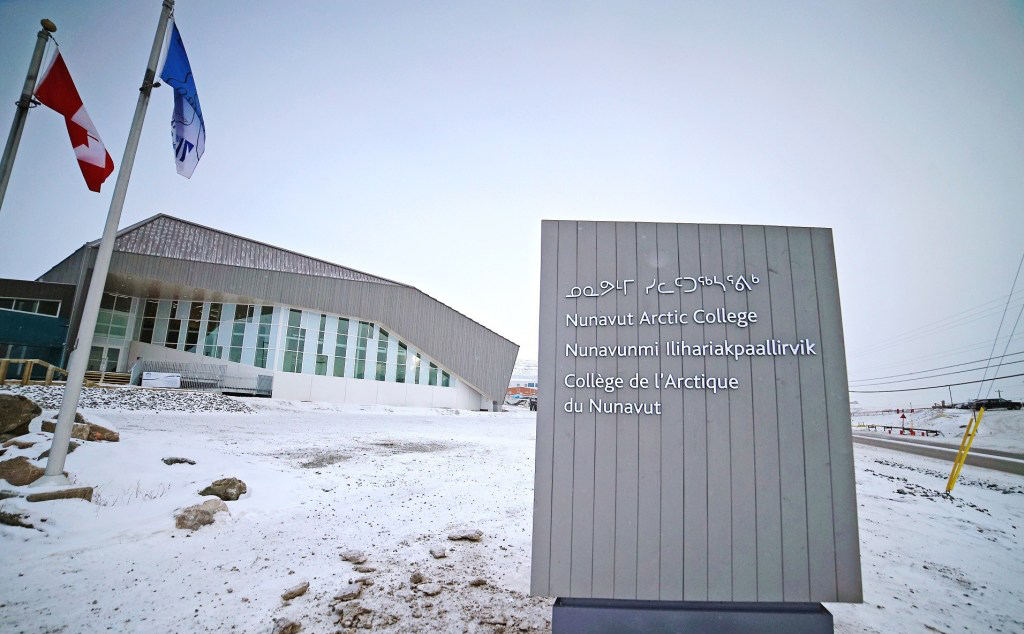Federal and territorial governments pledge more money for Inuktut revitalization in Nunavut
Canada's federal government has promised to spend up to $42 million on new efforts, while the Government of Nunavut plans to spend $25 million.

Though the agreement’s not final, the governments of Canada and Nunavut are promising to spend a combined total of up to $67 million over five years on supporting and revitalizing Inuktut in Nunavut.
The Department of Canadian Heritage announced those spending commitments Monday, saying it’s part of a Canada-Nunavut collaboration that includes Nunavut Tunngavik Inc.
It also represents one of the first implementation actions flowing from the Liberal government’s recently passed Indigenous Languages Act, which received royal assent in June.
“The Government of Canada, the Government of Nunavut, and Nunavut Tunngavik Incorporated are collaborating toward an agreement that will support, revitalize and strengthen Inuktut in Nunavut,” their news release says.
To that end, the federal government, through the Heritage Department, promises to spend up to $42 million over five years on strengthening Inuktut in Nunavut.
That commitment is subject to details that will be contained in an agreement that has yet to be finalized, through a federal-territorial-Inuit body called the Nunavut Partnership Table on Language and Education.
At the same time, the GN has promised to spend $25 million on what it describes as a “new laddered approach” to the Nunavut Teacher Education Program.
Earlier this year, a 2017 GN report on NTEP that was leaked to the media this past June found that NTEP-trained teaching graduates are not prepared to enter the teaching profession.
The report also found that NTEP instructors are poorly motivated, lack commitment and often show up to work late.
Nunavut Arctic College and its board of governors are responsible for NTEP.
Also last June, NAC and the Memorial University of Newfoundland announced an agreement under which Memorial will become Nunavut’s new partner on NTEP and will offer an “Inuit Bachelor of Education program” through the Labrador Institute.
That means Memorial will replace the University of Regina as an accreditation partner.
Under that revamped version of NTEP, NAC says it will now offer three levels of certification:
• A Nunavummi Inuktut Uqariuqsatittijiunirmut Ilinniarniq certificate.
• A language specialist diploma.
• A bachelor of education degree.
The president of Nunavut Tunngavik Inc., Aluki Kotierk, who in the past has been highly critical of federal and territorial government policies and practices related to Inuktut, said she’s pleased with the announcement and with the creation of the Nunavut Partnership Table on Language and Education.
“Inuktut must become the first language in Nunavut schools according to the Education Act and the Inuit Language Protection Act, and I believe this is a good concrete step towards realizing that,” Kotierk said in the news release.
“We are committed to ensure teacher training will be scaled up to more Nunavut communities following ongoing research, development, planning and implementation, monitoring and evaluation by the Nunavut Partnership Table on Language and Education,” she said.
For his part, Patterk Netser, the minister responsible for Nunavut Arctic College, said NAC will work with other GN departments to do more language training.
“Under the Turaaqtavut Mandate, and in keeping with the guiding principles of Ikajuqtigiinniq—working together for a common cause—Nunavut Arctic College is working with the GN departments of Culture and Heritage, Human Resources and Education to further language training in our community learning centres and campuses throughout Nunavut,” Netser said.
The yet-to-be-completed deal, described as a “pathfinder” agreement, will emphasize the following:
• Increasing access to Inuktut-language instruction in Nunavut.
• Increasing and maintaining the number of proficient Inuktut-speaking Inuit educators.
• Increasing the number of fluent Inuktut speakers in Nunavut.
• Establishing the Nunavut Partnership Table on Language and Education.
Nunavut News asked the Heritage Department to explain the term “pathfinder agreement,” but did not receive a clear answer.
“The Indigenous Languages Act is the result of an extraordinary collaborative effort, which is continuing during its implementation. It’s in this spirit that the Government of Canada, the Government of Nunavut, and Nunavut Tunngavik Incorporated are collaborating toward an agreement that will support, revitalize and strengthen Inuktut in Nunavut. Details of the agreement are still being finalized by the three parties,” a departmental spokesperson said.